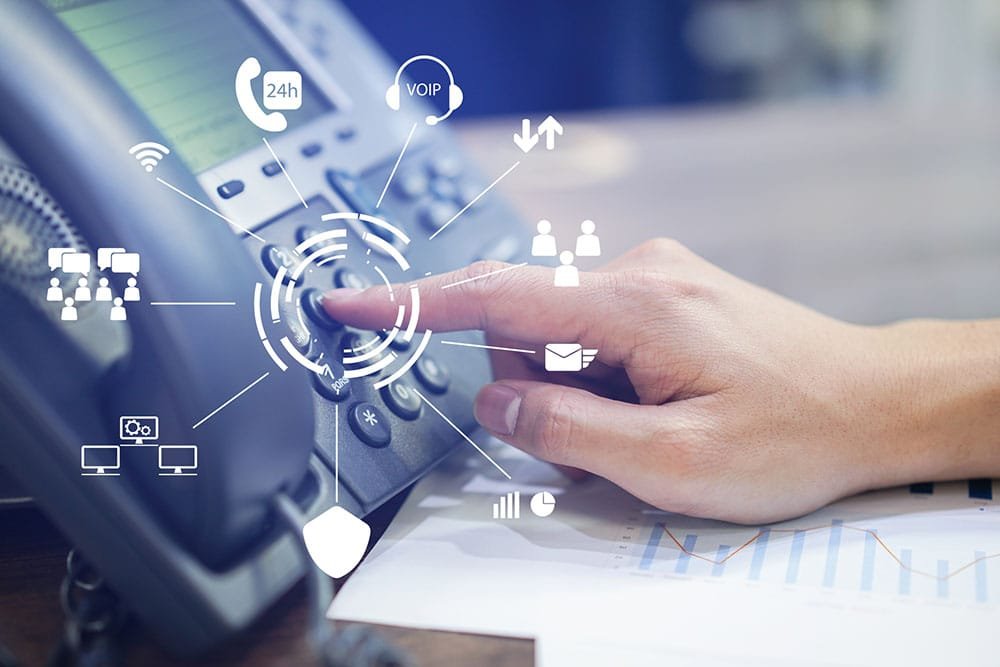What is Call Handling?
Call handling refers to the systematic process of managing telephone communications, which involves a series of actions taken to receive, answer, transfer, and resolve calls efficiently. This practice is a fundamental component of customer service, telecommunications, and business operations, ensuring that communication channels remain functional and effective. In a world where businesses rely heavily on telephonic interaction, understanding what is call handling becomes increasingly relevant and vital for success.
The core processes involved in call handling typically include greeting the caller, assessing their needs, providing information, transferring calls when necessary, and logging interactions for future reference. Each of these steps is designed to facilitate a seamless exchange of information, ultimately contributing to enhanced customer satisfaction and operational efficiency. For instance, a top call center in Ortigas exemplifies effective call handling by employing trained professionals who can quickly navigate inquiries, ensuring that every customer feels valued and understood.
The importance of call handling is underscored by its direct impact on customer experience. A well-managed call can lead to higher satisfaction scores, positive feedback, and even increased loyalty to a brand. Conversely, poor call handling can result in frustration and a negative perception of the company. Therefore, businesses must invest time and resources in developing strong call handling practices, equipping their teams with the necessary tools and training to manage calls effectively. Companies like Tru29 set a benchmark in the industry by highlighting the relevance of effective call handling as part of their customer relationship management strategy. Understanding call handling is essential for organizations aiming to foster strong communication and meet evolving customer expectations.
The Importance of Effective Call Handling
Effective call handling is a vital component of successful communication within any business, especially for those operating in customer service sectors such as the top call center in Ortigas. It encompasses the strategies and methods employed to manage incoming and outgoing calls, significantly influencing customer interactions. Understanding what is call handling? is essential for any organization aiming to improve its customer relations and enhance experience. Satisfactory call handling can lead to increased customer satisfaction and long-term retention, creating a lasting impact on a company’s reputation.
Statistics highlight the correlation between effective call handling and customer loyalty. According to a study, businesses that prioritize exceptional call handling see a 20-25% increase in customer retention rates. This figure underscores that clients are more likely to remain loyal when they feel heard and valued during communications. Conversely, poor call handling practices can lead to immediate dissatisfaction and potential loss of customers, which is detrimental in today’s competitive market.
For instance, Tru29, a leading service provider, emphasizes the importance of their well-trained agents who excel in managing calls efficiently. With a focus on resolving issues promptly and professionally, it has been reported that 78% of customers prefer to interact with representatives who demonstrate expertise and empathy during calls. This form of effective call handling not only addresses customer concerns but also fosters a sense of trust.
Moreover, the effectiveness of call handling extends beyond individual interactions. When businesses actively implement strategies that optimize call handling, it leads to a more positive overall brand image. Customers are likely to share their experiences, further amplifying the benefits of skillful communication. In summary, the relevance and importance of effective call handling can hardly be overstated, as it lays the foundation for building strong relationships with clientele and sustaining business growth.
Best Practices for Call Handling
Effective call handling is essential for ensuring customer satisfaction and fostering strong communication. One of the foundational practices in this area is active listening. This involves giving the caller undivided attention, demonstrating genuine interest in their concerns, and providing feedback that acknowledges their issue. Active listening not only helps in accurately understanding caller needs but also builds rapport, making clients feel valued and respected. Incorporating this skill into your call handling can significantly enhance the overall experience.
Clear communication is another critical component of effective call handling. It is vital to convey information in a straightforward manner, avoiding jargon and overly technical language that may confuse the caller. Using concise language ensures that the messages are easily comprehensible, thereby minimizing misunderstandings. Furthermore, speaking at a moderate pace allows the caller to absorb the information provided, contributing to a more efficient exchange.
Empathy is equally important in call handling. Expressing understanding and acknowledging the caller’s feelings can defuse tension, especially during difficult conversations. By validating their emotions, agents can create a more positive interaction, leading to a better resolution of the issue at hand. The ability to empathize often distinguishes the top call centers in Ortigas from others, as they prioritize the client’s emotional experience alongside the resolution process.
In addition to interpersonal skills, leveraging technology and call management systems can streamline the call handling process. Utilizing features such as automated response systems or customer relationship management tools allows agents to access necessary information quickly, improving service efficiency. Training staff to use these tools effectively enhances their capabilities, allowing them to handle calls more proficiently. For businesses like Tru29, implementing these best practices is crucial for improving their call handling, increasing customer satisfaction and loyalty.
Future Trends in Call Handling
The landscape of call handling is rapidly changing, driven by the emergence of advanced technologies and dynamic consumer expectations. Organizations are increasingly adopting AI-driven call centers, which utilize machine learning algorithms to analyze customer interactions and predict needs effectively. These solutions streamline processes, allowing representatives to focus on more complex queries while automating routine tasks. As these systems continue to improve, they are expected to significantly enhance the efficiency of communication, making them indispensable tools for the top call center in Ortigas and elsewhere.
Another notable trend is the rise of virtual assistants. These AI-powered tools are becoming integral to call handling, providing immediate assistance to callers by answering frequently asked questions and routing calls accurately. By optimizing the initial phases of call interactions, virtual assistants not only improve resolution times but also elevate the overall customer experience. This shift marks a significant move towards greater customer satisfaction, as callers are often directed to the appropriate representative more swiftly.
In addition, integrated communication platforms are reshaping how businesses manage customer interactions. By consolidating various channels—such as voice calls, chat, and email—into one central interface, organizations can provide a seamless experience for customers. This holistic approach to communication allows for better tracking of interactions and fosters a more personalized customer journey. Companies like Tru29 are exploring these advancements, ensuring they remain competitive and effective in meeting the demands of modern clientele.
As the call handling sector continues to evolve, it is crucial for businesses to remain informed and adaptable. Embracing these new technologies not only enhances efficiency but also positions companies to thrive in an increasingly digital environment. By understanding what is call handling? and recognizing the relevance and importance of these developments, organizations can significantly improve their customer service strategies.


